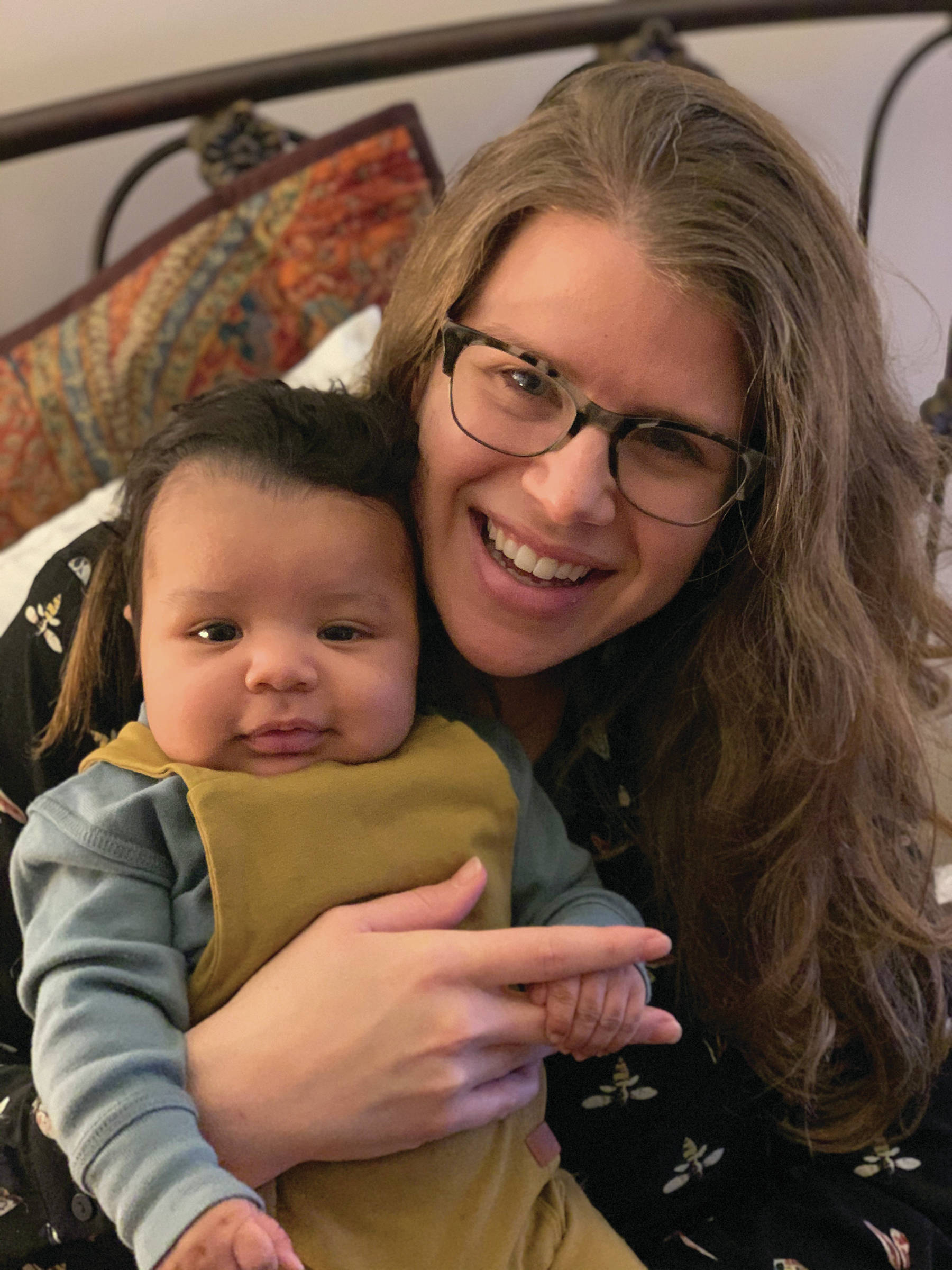It happened. After a month of holding it together from behind the computer screen of my life; nursing my 7-month-old son in-between my countless Zoom meetings, and trying to maximize my impact while working from home — it happened. The Will Smith song (Bill Withers original) “Just the Two of Us” played in the background of a TV show, and I lost it. Tears flowed, and my partner asked me, “Are you OK?”
I wasn’t. I have been so overwhelmed trying to get at everything on my work and family to-do lists, that I had been neglecting my emotional health.
This COVID-19 pandemic is hard and I hadn’t taken time to focus on my emotional wellness through any of it. MAPP (Mobilizing for Action through Planning and Partnerships) of the Southern Kenai Peninsula defines emotional wellness as “The ability to cope effectively with life and create a personal enrichment through one’s work and relationships.” Focusing on this dimension especially in times of uncertainty can help you better cope with stress and help bring balance to this strange new world we are living in.
I feel like all of us could use some focus on our emotional well-being right now, especially the essential workers called “parents.” Parenting is always a full-time job, and under typical circumstances can be challenging. Social distancing, schools and childcare centers being closed, and the loss of regular routines have added additional stress to this role.
This reminded me of the special newsletter that Sprout Family Services put out last month: “Parenting in the time of COVID-19,” written by Red Asselin. In it, she recommended five strategies that could help with this balance:
1. Find ways to ground yourself.
Practice techniques that promote relaxation and help to manage stress: deep breathing, guided meditation, yoga, aromatherapy.
2. Create new routines.
By now, most families have moved into their new rhythm and routine. If it’s working, keep it. If you have not developed one, think about one thing you can add to each day to keep it predictable and to begin bringing in the expected for you and one for your child. I like my morning coffee routine and the bedtime routine that we’ve set up for my baby.
3. Connect with your children and loved ones.
Take the time to play with your kids. Facilitate virtual connections for yourself and for them.
4. Find ways for your child to contribute.
Involve your child in household chores that fit their age range. On a community level, are there ways you and your family can give back? Donate if you’re able (Pick.Click.Give. has extended to the end of April), ask your child to pick the fabric of the masks you’re making, help your child write cards to the residents at the Assisted Living Center, Friendship Terrace or others.
5. Be Good Enough.
As the Sprout article went on to explain, “We have no handbook for parenting in the time of COVID-19. Some days it’s going to be pajamas, popcorn and movies all day. We just have to show up for our children as we are: a bundle of emotions trying to figure out how to make this time easier for our families.”
Lastly, I want to add another bullet:
6. Ask for Help
Parents: You are essential workers. If you feel like you need emotional support, someone to talk to, or to listen, there is help available. Sprout Family Services’ front doors are closed, but all staff are still working with parents on the phone or through video (call 907-235-6044). Other organizations on the Southern Kenai are here for you too: The Center, SVT, churches, Haven House and others. If you’re not comfortable with reaching out to an organization, try calling a friend. Reach out. We are all in this together and here to support you in the most essential job of parenting.
Jill Lush is mother to Henry, executive director of Sprout Family Services, and a MAPP Steering Committee member.
MAPP (Mobilizing for Action through Planning and Partnerships) is a local health improvement coalition with the vision of a proactive, resilient and innovative community.

